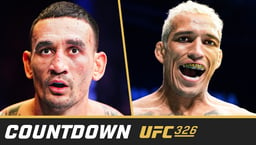
Issue 080
October 2011
There are no after parties and fighter bro hugs for serious referees. Here’s how to get your foot in the door and be a championship-caliber official
An MMA referee for 12 years, Mario Yamasaki has black belts in judo and BJJ and refereed the jiu-jitsu Pan-Am Games
I get asked a great deal about getting involved in MMA as a referee or judge – as do many of my colleagues. Only some of those people are sincere in their desire to be a part of the sport, others are caught up in the fantasy.
Many believe we have this glamorous life of watching top-notch events with the best view in the house, interacting with the stunning ring girls and celebrities, and that we enjoy the celebrity life style that being on TV brings us.
Here, I’m going to attempt to dispel some misconceptions and give those interested in becoming an official some better insight into how to go about it. And, for already-licensed up-and-coming referees, I have some ideas on how to improve.
WHO WE WORK FOR
Some people think we are employed by the UFC or other promotions. Not true. All event officials – referees, judges, timekeepers, dressing room inspectors, etc. – are part of the athletic commission. Throughout North America, athletic commissions are the regulatory bodies that govern combative sports in the various states, provinces, tribes, or municipal jurisdictions.
As officials we are given a license from the commission that allows us to work the MMA events sanctioned in its jurisdiction. When you watch a broadcast and you hear “live from the MGM Grand in Las Vegas” it means that the Nevada State Athletic Commission (NSAC) is sanctioning the event and the show is subject to the rules and regulations of the NSAC. If you become an official, you work for and represent the athletic commission. They are the boss.
GETTING STARTED
The first thing I would recommend if you wanted to become an official is to talk to your local commission. Ask if they are looking at hiring any new officials and express your desire to become one. They will provide tips and requirements that may help you.
Often they may have you shadow an official for a period of time. Shadowing involves working alongside an official as sort of on-the-job learning.
Some commissions require that officials start in the amateur shows to develop the proper skills and mechanics. Everyone has ambitions of working in the UFC and getting a title fight, however the truth is it could take a while.
Even though you might want to be a referee, some commissions might have you work in another capacity such as a dressing room inspector to get experience in working alongside a commission. Don’t take this a negative; there is some valuable education in working backstage alongside the athletes.
TRAINING COURSES
Currently, those interested in becoming an official can take an ABC (Association of Boxing Commissions) approved course. There are several on the group’s website approved by the ABC. Since this is my column, I should also note I have a training program, CORE MMA Officials, which is a recognized ABC training course.
But, even if you take a course and pass there is no guarantee you will be hired as an official. It’s like university: it doesn’t guarantee you a job but it increases your chances.

PRACTICE YOUR SKILLS
Go to a local gym and ask if you can develop your skills by refereeing sparring sessions. Referees’ abilities are not just developed working live events. As a studying official, you want to hone your skills and make your errors during these in-gym training sessions.
And it’s a good place to develop proper ring mechanics – the ability to move around the cage, change and modify pace and position, and develop fluid reflexes and timing. Anyone can look across a dance floor and recognize a great dancer versus someone who is out of sync. The same holds true with being a referee.
This training is important. Remember, if you are fortunate to be licensed by a commission, your performance will be evaluated.
MENTORSHIP
If you do, or have, become a licensed official, my recommendation is to find a good mentor: another referee, a commissioner, or someone who knows the sport and your role as an official. Have them critique you. There are some individuals with valuable knowledge who understand the sport. They can help by giving you an honest assessment of your skills.
STAY IN SHAPE
MMA is a physical sport where you are required to move and pace yourself, so you must stay fit. If you haven’t begun a fitness program,
you need to start one. Referees that are out of shape and out of breath are a disservice to the athletes they are required to protect. Some commissions even mandate their licensed officials undergo a medical prior to being licensed.
KNOW THE SPORT
Understand mixed martial arts. You are not a fan; you are part of the regulation process. There are well over a hundred technical components to the sport, including submissions, positions, reversals, sweeps, strikes, takedowns and throws. Know them intimately.
I was fortunate to have a background in the ground game from a family that lived and breathed judo and Brazilian jiu-jitsu. If you do not understand grappling and submissions then your ability to be a referee or judge is going to be diminished.
There is a codified system of rules called the Unified Rules of Mixed Martial Arts, which is the general rule set of MMA that is used in our industry. This needs to be understood and committed to memory. Read this if you are preparing to be a referee. It is a good place to start and can be easily found online.
Watch videos. It is easier to learn through other people’s mistakes and the internet is a great resource to examine how other officials ply their trade.
IN CLOSING
Becoming a referee requires preparation and persistence. If you want to become one, start planning now. If you are already an official, you need to continue to develop yourself. I know officials who show up and just do their job and don’t put anything else into bettering themselves until their next assignment. Remember, our first mandate is to protect the athletes, and we can only do that by improving ourselves as officials first.
KNOWLEDGE IS POWER
Fighters Only: Kim Couture (above), ex-wife of Randy, was on the end of much-lambasted officiating in July. During her fight with Sheila Bird in Calgary, Canada, the 3-5 middleweight was trapped in a head scissors and fell unconscious. The referee in charge took nearly 10 seconds to realize her state and waved off the fight before he broke the hold. Officials must always be fully informed and vigilant.
...









